I Newroz
In
praise of... Nowruz: As western nations celebrate the coming of spring,
other cultures are observing an ancient festival of renewal: The
Guardian, 20 March 2011
In western cultures, today is the spring equinox –- the long-awaited
moment that marks the end of winter, when the days begin to stretch out
noticeably and the nights to shrink. But in countries and cultures
across the Middle East and central Asia, notably Iran, 21 March is Nowruz
(or Nawroz, in Kurdish, or Norouz or Nauroz or several other variant
spellings that shift from city to city across Asia), the ancient
festival of the new year.

Kobani, Syria. A woman stands on Mistanur hill, where she will celebrate Newroz, the Kurdish new year: photo by Yasin Akgul/AFP via The Guardian, 23 March 2015
Like Easter in countries with a Christian
tradition, the religious and the pagan have merged into a single
anniversary marked with symbols of new life, such as decorated eggs and
spring flowers. In Iran, where it is associated with Zoroastrianism,
celebrants jump over bonfires to mark the victory of light over darkness,
and the ash of the fires is buried in the fields in a marriage of fire
and earth.
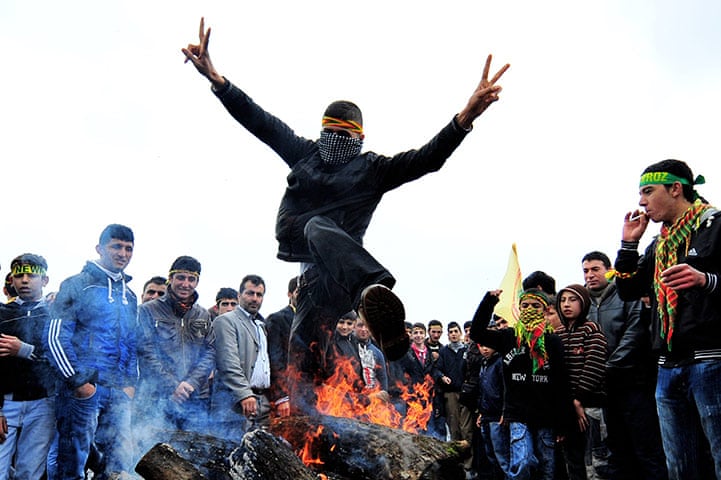
Istanbul, Turkey: A Turkish Kurd jumps over a fire during a gathering to celebrate Nowruz: photo by Mustafa Ozer/AFP via The Guardian, 21 March 2011
Festivals only endure when they are capable of reinvention. So in
Kurdish culture, where Nawroz is a reminder of victory over the
murderous tyrant Zuhak,
it is celebrated from Istanbul to the beaches of California as both
national independence day and an emblem of resistance.
It is a promise
that release from the burden of winter will one day be accompanied by
freedom from political oppression too.
A Kurdish woman celebrating the Kurdish new year Newroz. @zirmezirm: Ew e #Newroz ha! #TwitterKurds: image via A Dunon @ArjDn, 23 March 2015
The #Newroz of defiance — Kurds mark the Kurdish celebration of victory over tyranny: image via Ruwayda Mustafah @Ruwayda Mustafah, 23 March 2015

The #Newroz is the symbol of eternal liberation and crossing all the difficult paths to reach the pinnacle of success!: image via Naz @Naz23Gul, 20 March 2015
Happy #Newroz to Kurds and #Kurdistan and all of the other nations who celebrate the festival: image via Greater Kurdistan @Kurdistan_612, 20 March 2015
Happy #Newroz to all the world
Happy Newroz to the parents of our martyrs
Happy Newroz to all our freedom fightersto Kurds and #Kurdistan and all of the other nations who celebrate the festival: image via Urmiye Club @UrmiyeClub, 21 March 2015
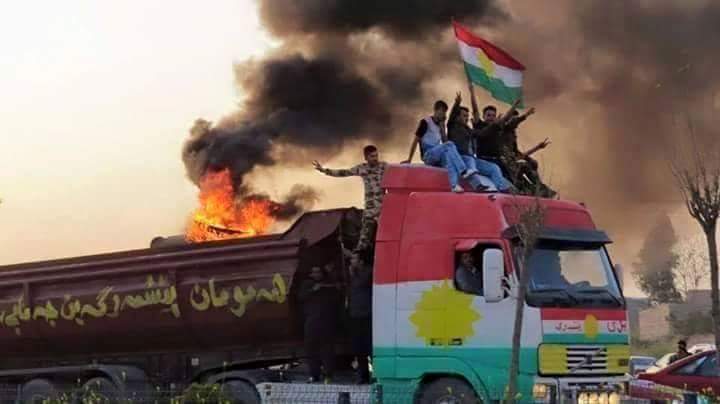
Sad. First #Newroz when I can't participate in the party. But great wishes and greetings to all who celebrate!: image via Dilba @DilbaKurd, 21 March 2015
Picture of the day: "You enjoy #Newroz, we will protect you" — Peshmerga message: image via Rudaw English @RudawEnglish, 23 March 2015
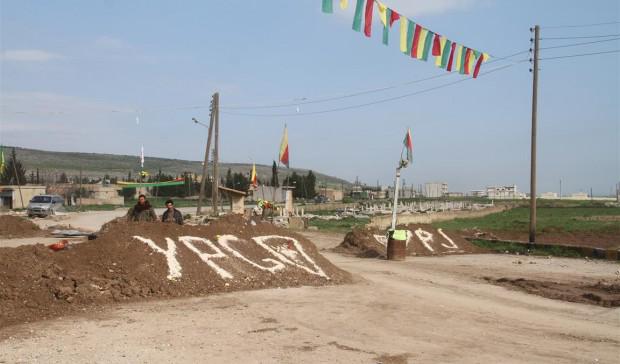
“Check points in Kobanê decorated for #Newroz": image via Amed News Agency @AJANSAMED, 15 March 2015
The spirit of Newroz will never die as long as our grandpa's celebrate it at this way! Today in Qoser #Newroz: image via Dilxaz Sofiyan @ Dilxazsofi,18 March 2015

#Newroz celebration in Wan/Van!: image via Jiyan Azadi @JiyanAzadi, 18 March 2015

#Newroz celebration in Wan/Van!: image via Jiyan Azadi @JiyanAzadi, 18 March 2015

#Kurdish #Newroz celebration celebration with dance around Fire is to fight against #ISIL and #Islam o Fascist state in #middleEast: image via Kobane RojAva @KOBANE, 18 March 2015
II Mehmed Uzun: Diyarbakir: The slap in the face
'Newroz' is the new day. Day of Resistance! #NewrozPirozBe #Newroz2015 #Kurdistan #Diyarbakir #Amed: image via Occupied Taksim @Occupied Taksim, 23 March 2015
In a prominent corner of my office hangs a phrase of Euripides: Omnis hominum vita est plena dolore. That
means: man's entire life is full of suffering. It goes without saying that this maxim is not there to encourage
suffering. Quite the contrary, it is there to impart a lesson, to transform suffering into a richness capable of
contributing to man's happiness without losing sight of it for a moment. This principle is important, if not for
everyone, at least for the child of a people condemned to suffer.
means: man's entire life is full of suffering. It goes without saying that this maxim is not there to encourage
suffering. Quite the contrary, it is there to impart a lesson, to transform suffering into a richness capable of
contributing to man's happiness without losing sight of it for a moment. This principle is important, if not for
everyone, at least for the child of a people condemned to suffer.
#Diyarbakir and #Turkey wait The #Newroz day on Saturday! #NewrozPirozBe #Kurdistan #Syria #Iraq #PKK @HDPgenelmerkezi: image via Tamer Yazar @tameryazar, 20 March 2015
For reasons that have nothing to do with my own will I came into the
world as a Kurd, and since then my life has been marked by two things: suffering and the lie. And one can
say that whatever my faults, the forty-seven years of my life have been entirely devoted to a struggle
designed to free me from these two evils. I have incessantly forced myself to decipher the hideous,
primitive, and cruel countenance of the lie, seeking to create on the basis of suffering artistic works placed
at the service of mankind, of humanity as a whole. I do not know to what extent I have succeeded. I do
know, however, that this has been the central motive of everything I have undertaken. Of course it is not
my intention here to tell my life's story in sentimental fashion, but I wish nevertheless to speak briefly of
three lessons that I have tried to draw from three grievous facts.
Swiss MP: Keeping PKK on Terror List Meaningless #twitterkurds #Amed #Diyarbakir #Newroz @BBC: image via Amy L Beam @amybeam, 19 March 2015
world as a Kurd, and since then my life has been marked by two things: suffering and the lie. And one can
say that whatever my faults, the forty-seven years of my life have been entirely devoted to a struggle
designed to free me from these two evils. I have incessantly forced myself to decipher the hideous,
primitive, and cruel countenance of the lie, seeking to create on the basis of suffering artistic works placed
at the service of mankind, of humanity as a whole. I do not know to what extent I have succeeded. I do
know, however, that this has been the central motive of everything I have undertaken. Of course it is not
my intention here to tell my life's story in sentimental fashion, but I wish nevertheless to speak briefly of
three lessons that I have tried to draw from three grievous facts.
Swiss MP: Keeping PKK on Terror List Meaningless #twitterkurds #Amed #Diyarbakir #Newroz @BBC: image via Amy L Beam @amybeam, 19 March 2015
The first lesson goes back to 1960, the year I was seven. On a hot, clear day at the end of summer, the
very day on which, dressed in new clothes from head to foot, I was beginning grammar school, I received a
violent slap in the face in the guise of a lesson on the importance of language and words. I had been born
and raised in the shelter of a Kurdish tribe. My family possessed no books except for the Koran, which
hung on the wall, and had neither a radio nor a television set. In this enormous house, its garden planted
with some pomegranate trees and an equal number of peach trees, the garden where roses bloomed,
there was nothing besides my father's bilur (shepherd's pipe), the stories and legends told by my
grandfather, and the beautiful strans (traditional songs) that my grandmother sang in the Zaza dialect of
Kurdish. It was a universe forged in the feelings, ideas, norms, and values of the Kurdish language.
A postcard from the 19th century. #Diyarbakir: image via Arif Ozavci @ahmetarifaltun3, 21 March 2015
I was seven years old and loved this universe that I was part of. But from the first hour of the first day that I
set foot in school I was instructed by a slap in the face, ineradicably engraved in my memory, that my
universe was meaningless, useless, primitive, and taboo, and that I had to leave it. While I was joining the
ranks of my classmates in the yard of the grammar school, which was named after the poet Ibrahim Rafet,
the teacher, who came from central Anatolia and was fulfilling his civil service, called me to order by a
violent slap because I was speaking with a classmate in my maternal tongue. "It is forbidden to speak
Kurdish!" The real meaning of this injunction, pronounced in Turkish, only came to me years later.
Turkey must ruin #Newroz celebrations for many every single year! Stay safe bakur. At least they can't stop Amed!: image via Lawen @Lawwwen, 19 March 2015
The lesson I drew from this slap is that language and the word are of great importance. The second lesson
came during the course of the summer of 1976. Arrested on March 21 of that year for my responsibilities
as managing editor of a Kurdish-Turkish magazine, I was accused of "separatism" and incarcerated in
Ankara's central prison. Some time afterward I became aware of the nature of the indictment against me,
and presented myself for the first hearing of what was called a Court for State Security, similar to the
tribunal that is currently banning my books. I no longer remember the month or the day, except that it was a
dog day in the summer of 1976. The atmosphere in the concrete chamber, windowless on all four sides,
was horribly suffocating. We were all sweating heavily: myself, "the accused" Mehmed Uzun, wearing a
short-sleeved shirt and linen pants; the tribunal made up of five people, two soldiers and three civilians all
obliged to wear their official dress; the prosecutor, who I later found out was a Kurd from Agri; my
counsel; my relatives who had come to be present at the trial; all of us were drenched in sweat. In answer
to the prosecutor's brief, which was no longer than two pages, I had prepared a response of seventy-six
pages attempting to prove in a pretty awkward and puerile manner the existence of the Kurds and the
Kurdish language. The prosecutor's argument was that the Kurds and their language had no form of
existence. Whoever claimed the contrary was considered a separatist and deserved to be punished.
Newroz at border of liberated #Kobane. Celebrating victory. Now time to break Turkish blockade. #twitterkurds @Hevallo: image via Nikolaj Villumsen @nvillumsen, 17 March 2015
The prosecutor hammered home his arguments while looking me straight in the eye. As for me, I
pronounced some phrases in the Kurdish language one after the other and then said to him: "That's the
language whose existence you deny. It also happens to be my maternal tongue. Did you understand any of
it?" The prosecutor, naturally, refused to answer and repeated his arguments. The trial was adjourned. It
was only in the sealed army van that was taking me to prison that my eyes stopped watering. Not so much
because of the overpowering heat but because of my impotence, my inability to establish a dialog with the
prosecutor and the tribunal: because I had been incapable of unmasking a horrible lie that was
misrepresented as truth by power, violence, the law, and official values. The lesson I drew from that inane
day was that the word must preserve its dignity, its respectability.
Transgender comrades are among great masses in #Newroz celebrations in #Diyarbakir. via @OccupiedTaksim: image via Insurrection News @InsurrectNews, 21 March 2015
As for my third lesson, it was furnished by my years in exile. I was finally freed after eight months in prison.
However, finding myself still under the threat of indictment on account of my responsibilities as editor of a
journal, I chose exile and left for Sweden, where I settled in 1977. The regulations prevailing in Turkey at
the time made any return to my native country impossible. Subsequently, in 1981, by decision of the
military regime and like many other Turkish and Kurdish intellectuals, I was stripped of my nationality, which
was my most elementary right. I learned quickly enough that exile was a bottomless pit, or, in Gombrowicz's
expression, "a cemetery inhabited by the living."

Over one million #Kurds celebrating #Newroz in #Diyarbakir #Turkey: image via Theo @ahaymatios, 21 March 2015
How to live in exile while avoiding this cemetery? How to lead a respectable, productive life capable of
enriching all mankind? Those were some of the questions among many others that never ceased gnawing
at me. As a newcomer to the West I set myself to investigate, to read exiled writers of the Western world in
order to find out what their experiences and their responses to these questions had been. Homer,
Euripides, Ovid, Vergil, Dante, Cervantes, Hugo, as well as writers from our criminal century: Mann, Zweig,
Broch, Canetti, Bunin, Berberova, Celan, Sachs, Singer, and many other creators of the aesthetic literature
of uprootedness and suffering.

Image #Diyarbakir where thousands gathered to hear PKK's jailed leader Ocalan's message read short time ago #turkey: image via chantalrebelle @chantalrebelle, 21 March 2015
Today, fifteen to twenty years later, I am writing an essay about my cherished writers titled "I am a Green
Phoenix." For each of them was a phoenix reborn from its ashes. The lesson that I draw from my life in
exile, every day of which was as long as an entire lifetime, can be summed up in a few words: language
must be beautiful, simple, and humane. I have learned from experience that a beautiful and humane word
surpasses in force every oppression, tyranny, or disaster. Thanks to their creations, each of my "green
phoenixes" is far more immortal, far more humane than all the sacred and absolute leaders who were the
Sardanapaluses of their times.
The lesson I drew from this slap is that language and the word are of great importance. The second lesson
came during the course of the summer of 1976. Arrested on March 21 of that year for my responsibilities
as managing editor of a Kurdish-Turkish magazine, I was accused of "separatism" and incarcerated in
Ankara's central prison. Some time afterward I became aware of the nature of the indictment against me,
and presented myself for the first hearing of what was called a Court for State Security, similar to the
tribunal that is currently banning my books. I no longer remember the month or the day, except that it was a
dog day in the summer of 1976. The atmosphere in the concrete chamber, windowless on all four sides,
was horribly suffocating. We were all sweating heavily: myself, "the accused" Mehmed Uzun, wearing a
short-sleeved shirt and linen pants; the tribunal made up of five people, two soldiers and three civilians all
obliged to wear their official dress; the prosecutor, who I later found out was a Kurd from Agri; my
counsel; my relatives who had come to be present at the trial; all of us were drenched in sweat. In answer
to the prosecutor's brief, which was no longer than two pages, I had prepared a response of seventy-six
pages attempting to prove in a pretty awkward and puerile manner the existence of the Kurds and the
Kurdish language. The prosecutor's argument was that the Kurds and their language had no form of
existence. Whoever claimed the contrary was considered a separatist and deserved to be punished.
Newroz at border of liberated #Kobane. Celebrating victory. Now time to break Turkish blockade. #twitterkurds @Hevallo: image via Nikolaj Villumsen @nvillumsen, 17 March 2015
The prosecutor hammered home his arguments while looking me straight in the eye. As for me, I
pronounced some phrases in the Kurdish language one after the other and then said to him: "That's the
language whose existence you deny. It also happens to be my maternal tongue. Did you understand any of
it?" The prosecutor, naturally, refused to answer and repeated his arguments. The trial was adjourned. It
was only in the sealed army van that was taking me to prison that my eyes stopped watering. Not so much
because of the overpowering heat but because of my impotence, my inability to establish a dialog with the
prosecutor and the tribunal: because I had been incapable of unmasking a horrible lie that was
misrepresented as truth by power, violence, the law, and official values. The lesson I drew from that inane
day was that the word must preserve its dignity, its respectability.
Transgender comrades are among great masses in #Newroz celebrations in #Diyarbakir. via @OccupiedTaksim: image via Insurrection News @InsurrectNews, 21 March 2015
As for my third lesson, it was furnished by my years in exile. I was finally freed after eight months in prison.
However, finding myself still under the threat of indictment on account of my responsibilities as editor of a
journal, I chose exile and left for Sweden, where I settled in 1977. The regulations prevailing in Turkey at
the time made any return to my native country impossible. Subsequently, in 1981, by decision of the
military regime and like many other Turkish and Kurdish intellectuals, I was stripped of my nationality, which
was my most elementary right. I learned quickly enough that exile was a bottomless pit, or, in Gombrowicz's
expression, "a cemetery inhabited by the living."

Over one million #Kurds celebrating #Newroz in #Diyarbakir #Turkey: image via Theo @ahaymatios, 21 March 2015
How to live in exile while avoiding this cemetery? How to lead a respectable, productive life capable of
enriching all mankind? Those were some of the questions among many others that never ceased gnawing
at me. As a newcomer to the West I set myself to investigate, to read exiled writers of the Western world in
order to find out what their experiences and their responses to these questions had been. Homer,
Euripides, Ovid, Vergil, Dante, Cervantes, Hugo, as well as writers from our criminal century: Mann, Zweig,
Broch, Canetti, Bunin, Berberova, Celan, Sachs, Singer, and many other creators of the aesthetic literature
of uprootedness and suffering.

Image #Diyarbakir where thousands gathered to hear PKK's jailed leader Ocalan's message read short time ago #turkey: image via chantalrebelle @chantalrebelle, 21 March 2015
Today, fifteen to twenty years later, I am writing an essay about my cherished writers titled "I am a Green
Phoenix." For each of them was a phoenix reborn from its ashes. The lesson that I draw from my life in
exile, every day of which was as long as an entire lifetime, can be summed up in a few words: language
must be beautiful, simple, and humane. I have learned from experience that a beautiful and humane word
surpasses in force every oppression, tyranny, or disaster. Thanks to their creations, each of my "green
phoenixes" is far more immortal, far more humane than all the sacred and absolute leaders who were the
Sardanapaluses of their times.

Solidarity with hungerstrikers in Greece #Diyarbakir #Newroz #hungerstrike2015 #antireport: image via Occupied Taksim @Occupied Taksim, 23 March 2015
Beauty, strength, dignity. Language is the only area in which I permit myself to bring together these three
words that are so vague, overused, and full of snares. It also took me some time to discover in my own life
these three qualities of language. I began by taking shelter in words, creating a warm space only for my
own use, a space beyond countries, borders, prejudices, and various loyalties, and thus immersing myself
completely in the universe of words. Then I began to seek and assemble my words, which had been sorely
tried by time, wounded in their quasi-totality, and which I had to heal. Finally, putting them in order to
create literary works, I offered them to the Kurds, to Turkey, to the Middle East, and to Europe. The Kurds
took up these works with joy and jealousy. For these wounded words were theirs, they belonged to their
cultural heritage and bodied forth the voice of their melancholy, their sufferings.

The biggest demonstration in the Middle East, #Newroz celebration held by the PKK in #Diyarbakir today #DeListThePKK: image via Amed News Agency @AJANSAMED, 21 March 2015
On January 15, 2000, in Diyarbakir, I was able to affirm the extraordinary force of language. On the
occasion of the appearance in Turkish of my novel Roni mina evine-tari mina mirina (Clear as Love, Dark
as Death), I found myself in the company of my Turkish and Kurdish publishers. At the invitation of the
Democratic Platform, composed of civic organizations such as the Turkish Bar Association, the order of
physicians, and numerous workers' unions, I gave in the precincts of the City Hall a lecture entitled
"Language, Identity, Literature." According to information furnished by the Platform officials, six thousand
people were present: young, old, children, intellectuals, peasants, workers, businessmen, all constantly
exposed to scorn, to different vexations, oppressed on account of their language, their culture, their
identity, and finding or seeking to find in a word of literature that owed everything to them a semblance of
hope, consolation, joy, and pride. The next day I participated in a book signing at the Avesta bookstore,
writing dedications in my book for six or seven hours without interruption. There, too, people stood patiently
in interminably long lines that overflowed onto the sidewalk.
Many of the girls at Newroz had these beautiful sparkly dresses -- I had serious sequin envy. #Diyarbakir: image via Katrinka Nadworny @KatrinkaSasha, 22 March 2015
How to explain the infatuation of these people, this joy, this patience?
Over one million #kurds celebrating #Nawroz in #Amed #Diyarbakir 2015 #Kurdistan #Flag #OCALAN #PKK: image via Hadi Elis @hadi_elis, 21 March 2015
Among the hundreds of letters, questions, poems, criticisms, and suggestions that came to me in the
course of those two days I have only kept two, entrusting the rest to the Democratic Platform with the
intention of reading and examining them at leisure at a later date: a letter in Kurdish dictated by an old
grandmother to her grandson, and a photograph given to me by a little boy of seven or eight whose first
name is Omer.
This is not in Amed,Wan or Batman! This is Riha/Urfa 2015 Newroz celebrations! V @ibrayhan #NewrozPirozBe #Newroz: image via Dilxax Sofiyan @Dilxaxsofi, 19 March 2015
The old grandmother had had her grandson read her in Kurdish my novel Bira Qedere, and had asked him
to communicate her impressions to me in writing. In reading her letter my eyes grew misty from mixed
feelings of sadness and joy. As for Omer, on the day of the book signing, presenting me with a pile of
books to inscribe to various people, he had left on the table his photograph, on the back of which were the
following words: I greet you with the pure feelings of a child. Greetings! Greetings to you, honorable author
who writes with so much suffering while resigning yourself to live far away from your country. Reading you I
understand how much I owe you for speaking of me, of your people, and it makes me sad. Life becomes
more painful when it is told as a story. But suffering also gives one a feeling of life and helps to grow ...
-- Omer

#Newroz celebrations in various cities of Northern #Kurdistan today. This is Nisêbîn: image via Amed News Agency Lawen @AJANSAMED, 19 March 2015
After reading these words I immediately called my friends of the Democratic Platform and asked them to
find Omer, whose identity, whose family name, I did not know, and to tell him that I was the one who was
really indebted to him. My debt to Omer was the beauty, strength, and dignity of his literary statement.

#Newroz celebrations in various cities of Northern #Kurdistan today. This is Gever: image via Amed News Agency Lawen @AJANSAMED, 19 March 2015
In the plane carrying me back from Diyarbakir to Istanbul I shared my excitement with my friends. "That's
the power of language!" I told them. "Those who claim it has become meaningless are badly deceiving
themselves. Language is still powerful."

#Newroz celebrations in various cities of Northern #Kurdistan today. This is Riha: image via Amed News Agency Lawen @AJANSAMED, 19 March 2015
However, the historical experience of language scorned repeats itself always and everywhere. Those
whose voices are silenced, whose difference is denied, who encounter so many difficulties in expressing
themselves and who need language as much as they need bread or water, they make it their own. As for
the others, those who demand that all men be like one another, experience the same feelings, live and
think identically, and who seek to impose this choice by force, they fear language more than anybody, and
try to control it. And history repeated itself at Diyarbakir. Seven of my books, six in Kurdish and one in
Turkish, were suppressed by Judgment no. 2000/39 of the Fourth Court for State Security of Diyarbarkir,
dated February 4, 2000, and this in flagrant violation of Turkish law. Also, beginning in March, the police
systematically began making a sweep of bookstores in Ankara, Bingol, Batman, and Nusaybin, seizing my
books and forcing the booksellers to sign documents forbidding their holding or selling them. In the course
of my lecture I affirmed that the unity and integrity of Turkey was of great importance in the eyes of the
Kurds; that the Kurds must abstain from all violence and abstain also from relations with
totalitarian-regimes like those of Iran, Iraq, or Syria; that the Turks as well as the Kurds must take their
proper place among democratic nations; and that the Kurds themselves could aid Turkey on the road to
democratization. Even though my talk had been filmed in its entirety by police in Mufti, all my books,
including the Kurdish original of my novel as well as its Turkish translation, came under the ban. Why?

#Newroz celebrations in various cities of Northern #Kurdistan today. This is Cewlig: image via Amed News Agency Lawen @AJANSAMED, 19 March 2015
Because the Kurds, like the other ancestral communities of Mesopotamia, such as the Assyrians, Syrians,
Armenians, Jews, Chaldeans, Nestorians, Yezidis, or Alawites, who find themselves in a situation far more
difficult than that of the Kurds, are confined in an irrevocable mode of life. These communities, which have
received from history a slap in the face like the one I received at the age of seven, have been condemned
to disappear. Completely deprived of their legitimate democratic role, human rights, the right of equality,
and freedom of conscience, delivered over to ignorant and wilful military dictators who could not care less
about law and justice, to shameless religious leaders who push religious conservatism to an extreme, in a
region governed by arrogant politicians who only pay lip service to the words civilization, happy future, and
justice, but who are in reality totally insensitive to the real needs of their fellow citizens and completely
befuddled by the technical and economic progress to which they reduce all reality, these populations
always hear the same message repeated: "Accept your fate. Your forehead is marked with the stamp of
death. Do not struggle in vain, history's slap is mortal. Do not expect any help from outside, because you
are alone, no one will hear your long cry. Do not hope to open yourself to the world, still less to rejoin it.
You have no other choice but to sting those around you like a scorpion -- before stinging yourself and
disappearing. Everything that belongs to you -- including your linguistic and cultural heritage -- will be nothing
but dead knowledge. You can speak your language in your family if you wish, and even create a literature
of the oppressed, capable of awakening in others a feeling of pity. Within your confined universe you can
cry out, howl, quarrel with your neighbors. But do not try to open yourselves to the world or to offer it
anything at all. Your only chance for survival is to forget everything, to abandon everything that belongs to
you and conform to the official vision that defines you. Be ashamed of your own language, your identity,
your cultural heritage, and admit that they are primitive and from now on useless. Turn to money, celebrity,
pleasure, comfort, kill what you carry in your soul, your brain, your heart. Come, join us ..."
The Story of Newroz #TwiterKurds #Newroz : image via KurdishQuestion.coms @KurdishQuestion, 21 March 2015
That is what has been repeated for two centuries to the custodians of the oldest cultural heritage of
humanity. The Epic of Gilgamesh, the stories of the Bible, the parables of the prophets, the paradise
gardens of the Euphrates and the Tigris, the ghats of Zoroaster, Babylon, Nineveh, Ur, Adam, Eve, Noah,
Abraham, Jacob, and an innumerable number of other human treasures belong to them. Still, it is deemed
necessary that all this be retained as an ornament evoking the past, but a past not in any way enriched by
evoking new voices, new breath.

#Kurdish #Newroz celebration with dance around Fire is to fight against #ISIL and #Islam o Fascist state in #middleEast: image via Kobane RojAva @KOBANE, 18 March 2015
To paraphrase Ovid, what would happen if, incurring guilt for having seen certain things, you would
understand that the reality to which you are required to adhere is a tissue of lies, and you were to insist on
giving to this cultural heritage, to those of its languages still capable of being revived, a new voice, a new
breath consistent with their spirit? The answer is to be found in Tristia by this same Ovid: The gods never
pardon those who -- even unknowingly -- rise up against them. And so it is with a goal of blocking you that
whole armies are set in motion, police, laws, information services, squadrons of death, universities,
newspapers, television and radio networks, censorship bureaus, walls raised in heads and minds,
tribunals, prosecutors, judges, prisons, torture centers, all in league to impose the lie as the sole reality
and determined to make this lie triumph.

#Kurdish #Newroz celebration with dance around Fire is to fight against #ISIL and #Islam o Fascist state in #middleEast: image via Kobane RojAva @KOBANE, 18 March 2015
That is the history that was repeated yet again at Dyabarkir. For myself, I who remain firmly convinced that
it is the mission of language and literature to bring men together rather than to divide them, this state of
affairs is saddening. Language is a warm place, sincere, that has room for all differences, where all these
differences constitute a fabulous richness. What can I do? It is of course impossible for me to accept this
situation, the reduction of literature to a supplementary element of criminality, or to accept the totalitarian
and repressive mentality. What can I do alternatively? I can recall my debt to the old grandmother who
transmitted to me one of the oldest languages of Mesopotamia, and to the child Omer, who must have
received as I did a slap in the face from his teacher. For them I can make the gift of new words, more
beautiful, more worthy. There can be no doubt that I have a debt toward this old grandmother and little
Omer.
Mehmed Uzun (1953-2007): Diyarbakir: The slap in the face, from International Journal of Kurdish Studies, January 2003 (via Diyarbakir Media)
Mehmut Uzun died in Diyarbakir in October 2007
The crowd at #newroz today in #Amed #Diyarbakir #NewrozPirozBe: image via cale salh @callysally, 21 March 2015
III Kurdish Spring: Light Out Of Darkness: The Battle for Kobane
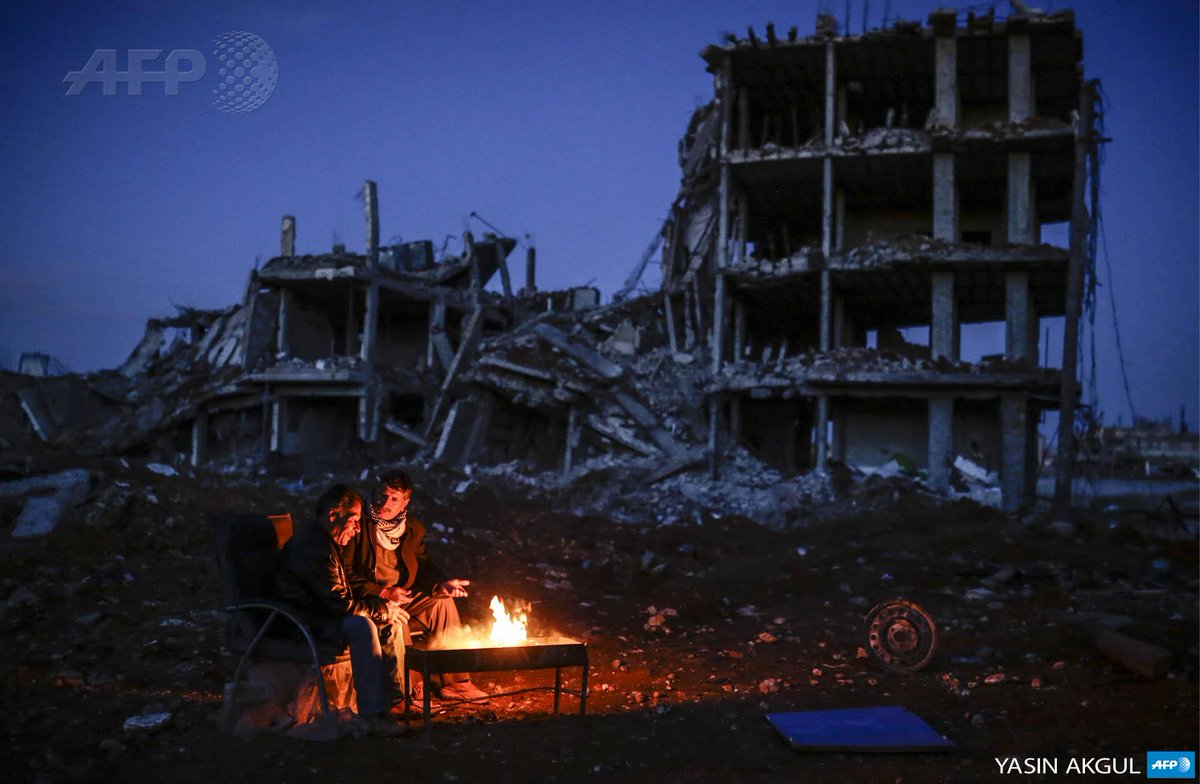
#Syria Kurdish men sit near a bonfire in the Syrian Kurdish town of Kobane. Photo by Yasin Akgul #AFP | #Kobane: image via Stephanie Beauge @sbeaugeAFP, 24 March 2015
That picture is amazing RT @DilbaKurd: Spring in #Kobane - growing in #ISIS grenades. #TwitterKurds #Rojava: image via Cameron Gray @CameronGray, 24 March 2015
@Avashin MT - Reports of 39 daeshbags killed by YPG & YPJ on SereKaniye / Ras al Ayn fronts. #TwitterKurds #Kobane: image via Doloroso @Pyrrha108, 24 March 2015

#Kobane Southeast front 24 March: during the day #YPG #YPJ have liberated 4 villages and killed 47 #ISIS terrorists : image via Dilba @DilbaKurd, 24 March 2015

#Kobane Southeast front 24 March: during the day #YPG #YPJ have liberated 4 villages and killed 47 #ISIS terrorists : image via Dilba @DilbaKurd, 24 March 2015

#Kobane Southeast front 24 March: during the day #YPG #YPJ have liberated 4 villages and killed 47 #ISIS terrorists : image via Dilba @DilbaKurd, 24 March 2015

#Kobane Southeast front 24 March: during the day #YPG #YPJ have liberated 4 villages and killed 47 #ISIS terrorists: image via Dilba @DilbaKurd, 24 March 2015

#Lalmagen de #JuanJoséMillás. ¿Adónde fue la gente? #Kobane tras un #bombardeo. #Millás #Siia: image via EL PAIS SEMANAL @elpaissemanal, 17 March 2015
#KOBANE This brave city will rise again like a phoenix. Then your caliphate will be fallen to get revenge of #Kobane: image via Silbus Peri #KOBANE @silperinu, 23 March 2015

Dead leader of failed #Kobane offensive, Abu Khattab al-Kurdi, is in new #IS vid, "Message to People of Kurdistan": image via Charlie Winter @charliewinter, 23 March 2015

Dead leader of failed #Kobane offensive, Abu Khattab al-Kurdi, is in new #IS vid, "Message to People of Kurdistan": image via Charlie Winter @charliewinter, 23 March 2015

Lebanese Abu Bakr Al Sayadi, an ISIS military commander, was killed by YPG in rural #Kobane #TwitterKurds: image via Gudaw English @GudawEnglish, 24 March 2015

Lebanese Abu Bakr Al Sayadi, an ISIS military commander, was killed by YPG in rural #Kobane #TwitterKurds: image via Gudaw English @GudawEnglish, 24 March 2015
One of last pic of #YPG fighter Pervin kild in #Kobane by I Kaçar 'Kurdish women on frontline' : image via Mutlu Civiroglu @mutludc, 22 March 2015
Newroz in #Kobane: image via Silbus Peri #KOBANE @silperinu, 21 March 2015

Photos: Newroz Celebration in #Kobane now - @bali_mahmoud: image via Conflict News @ConflictNews, 20 March 2015

Photos: Newroz Celebration in #Kobane now - @bali_mahmoud: image via Conflict News @ConflictNews, 20 March 2015

Photos: Newroz Celebration in #Kobane now - @bali_mahmoud: image via Conflict News @ConflictNews, 20 March 2015

Photos: Newroz Celebration in #Kobane now - @bali_mahmoud: image via Conflict News @ConflictNews, 20 March 2015
Yeah Khalipha, that is what happend to your mujahidens in #Kobane. Every day tens of their bodies found by us.: image via Silbus Peri #KOBANE @silperinu, 17 March 2015






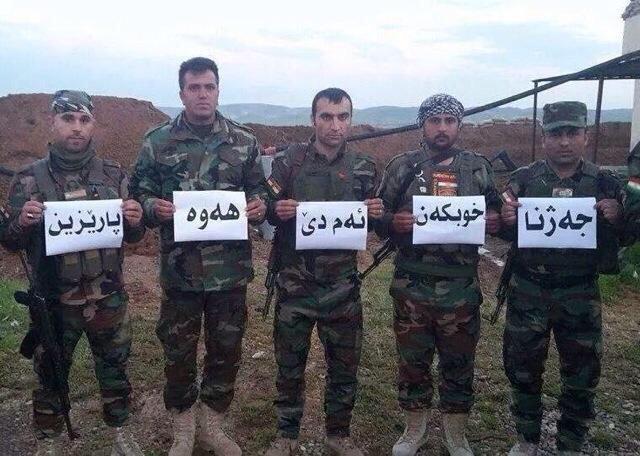
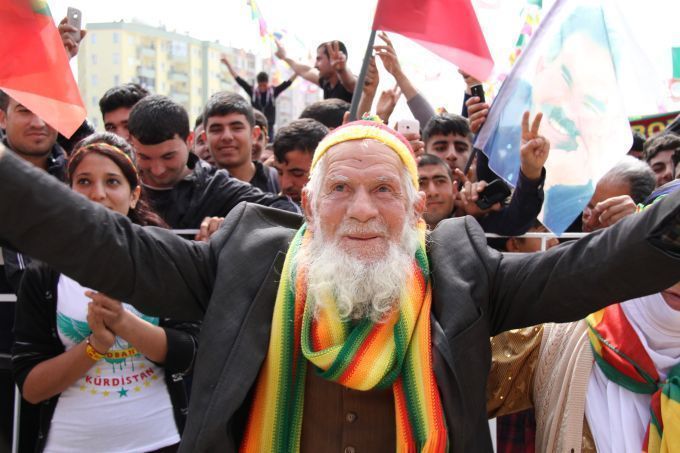
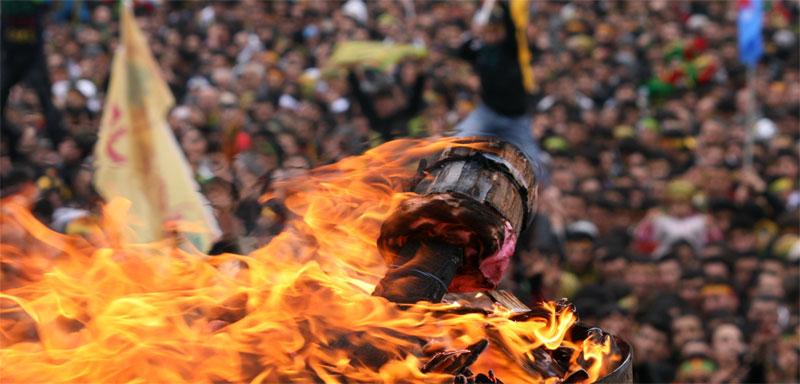
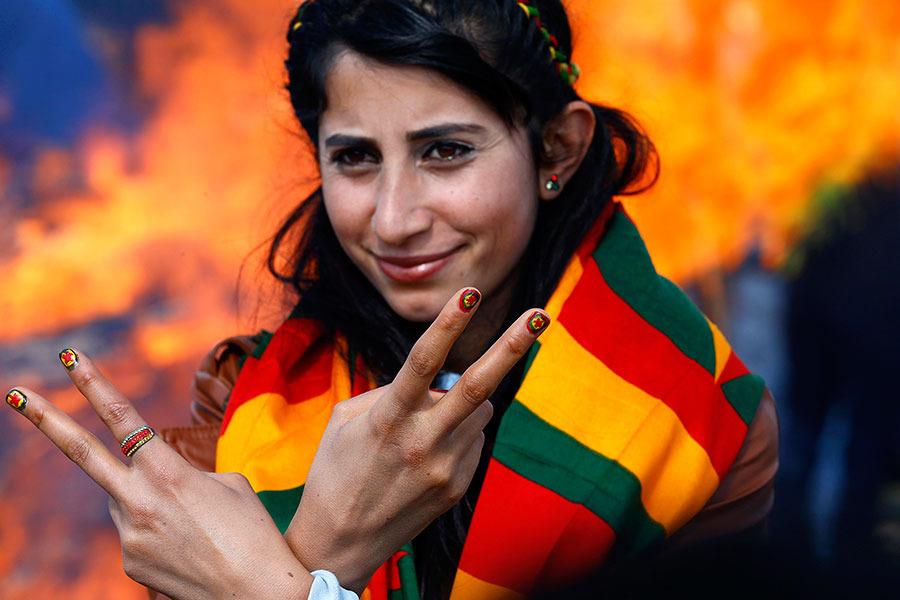
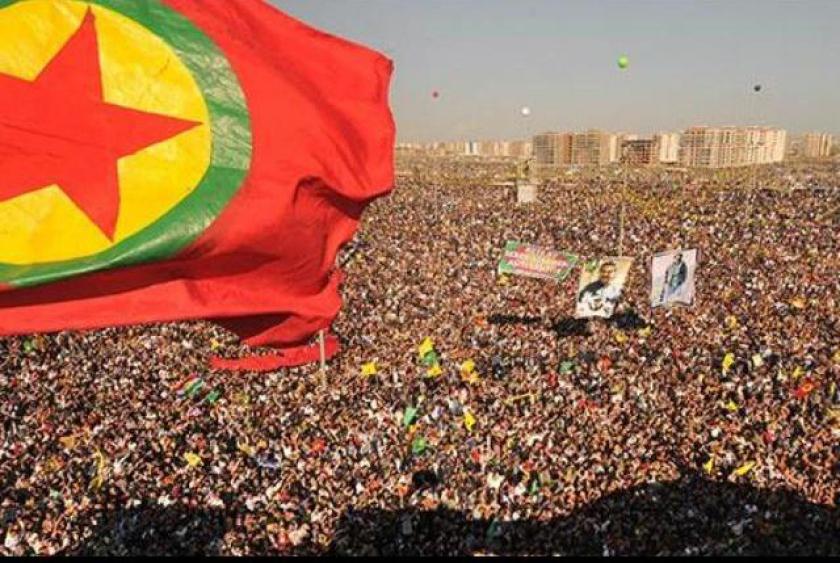



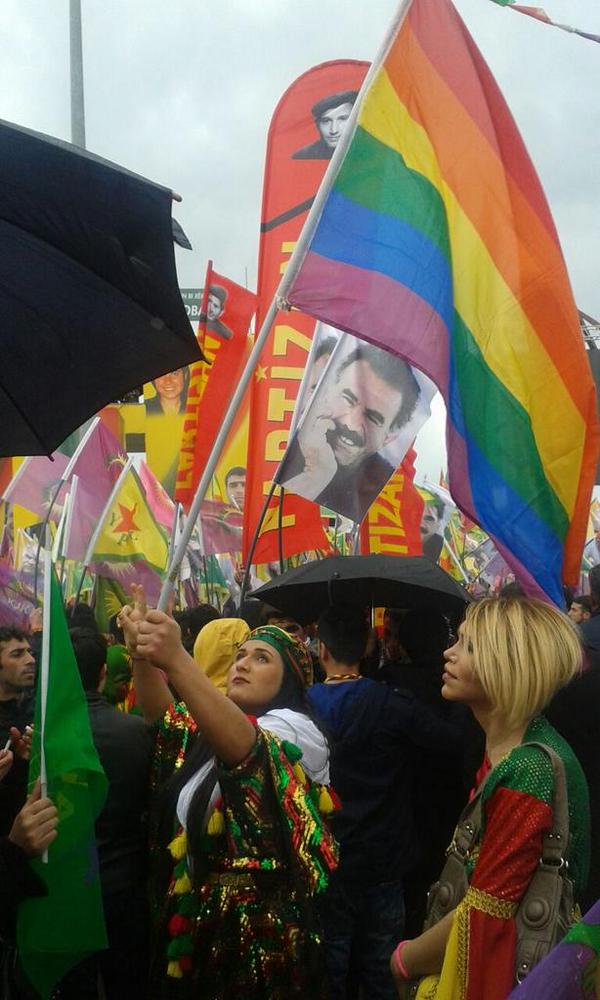
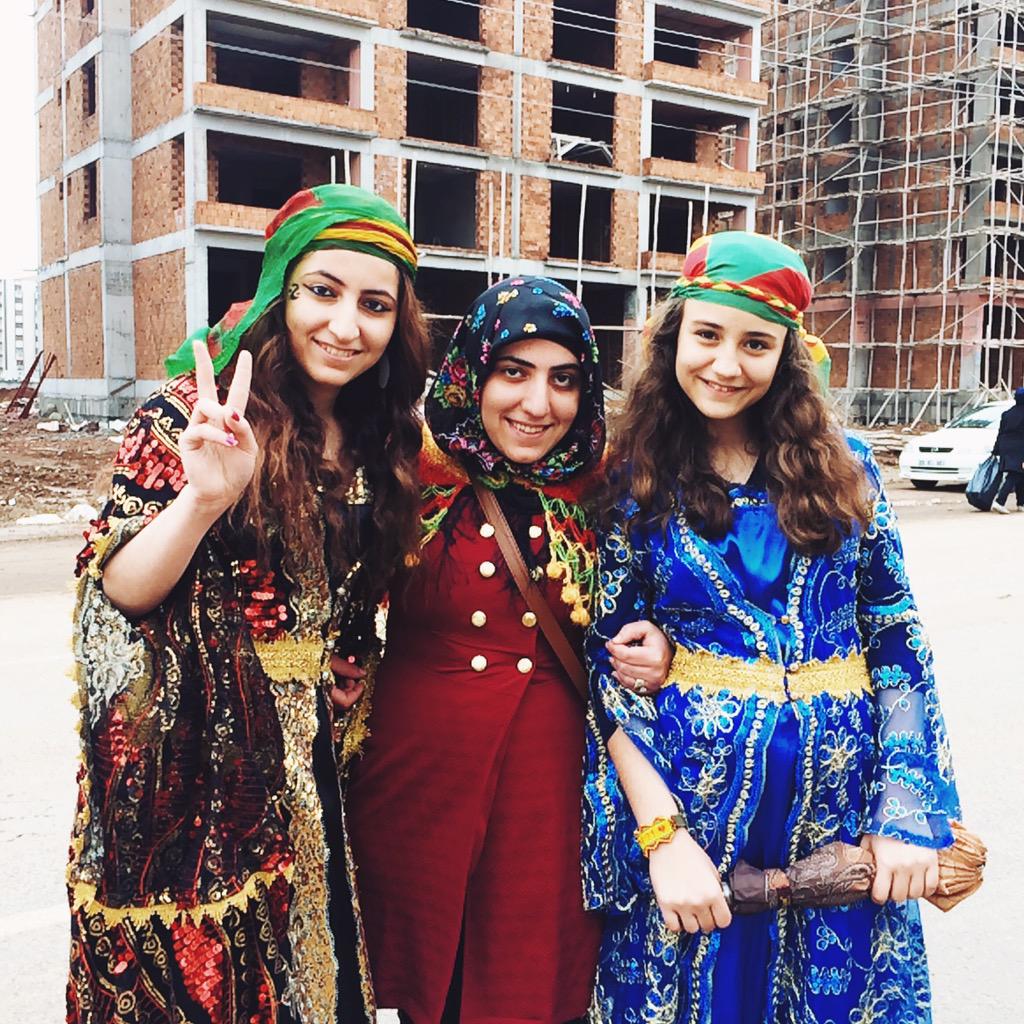

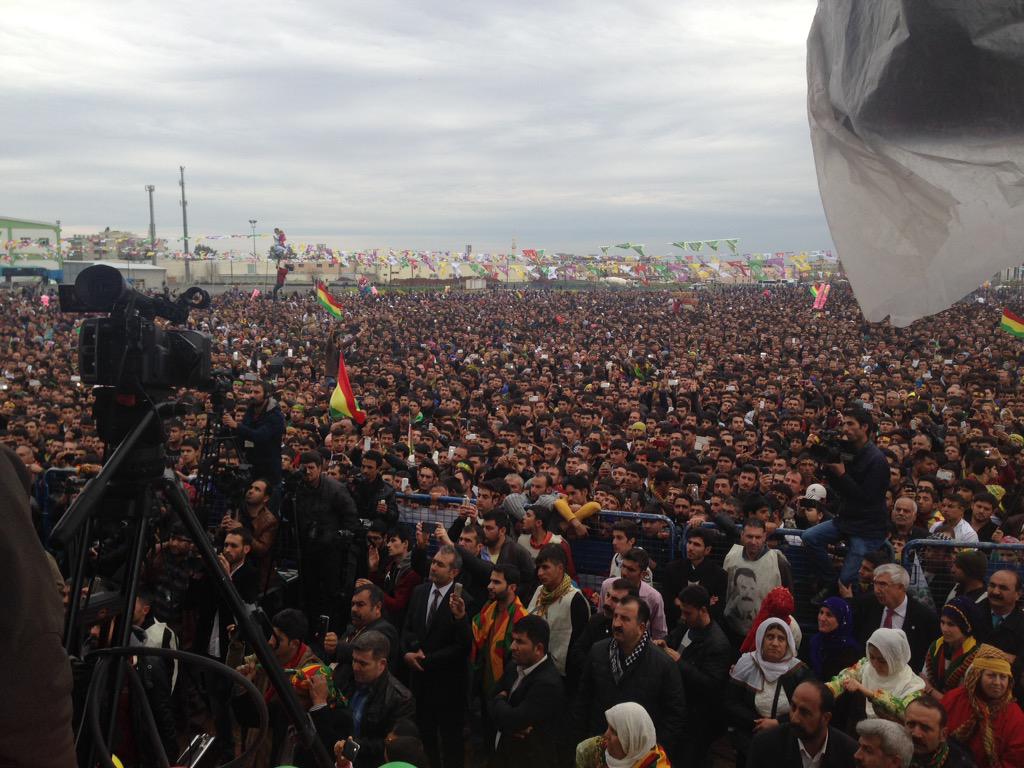
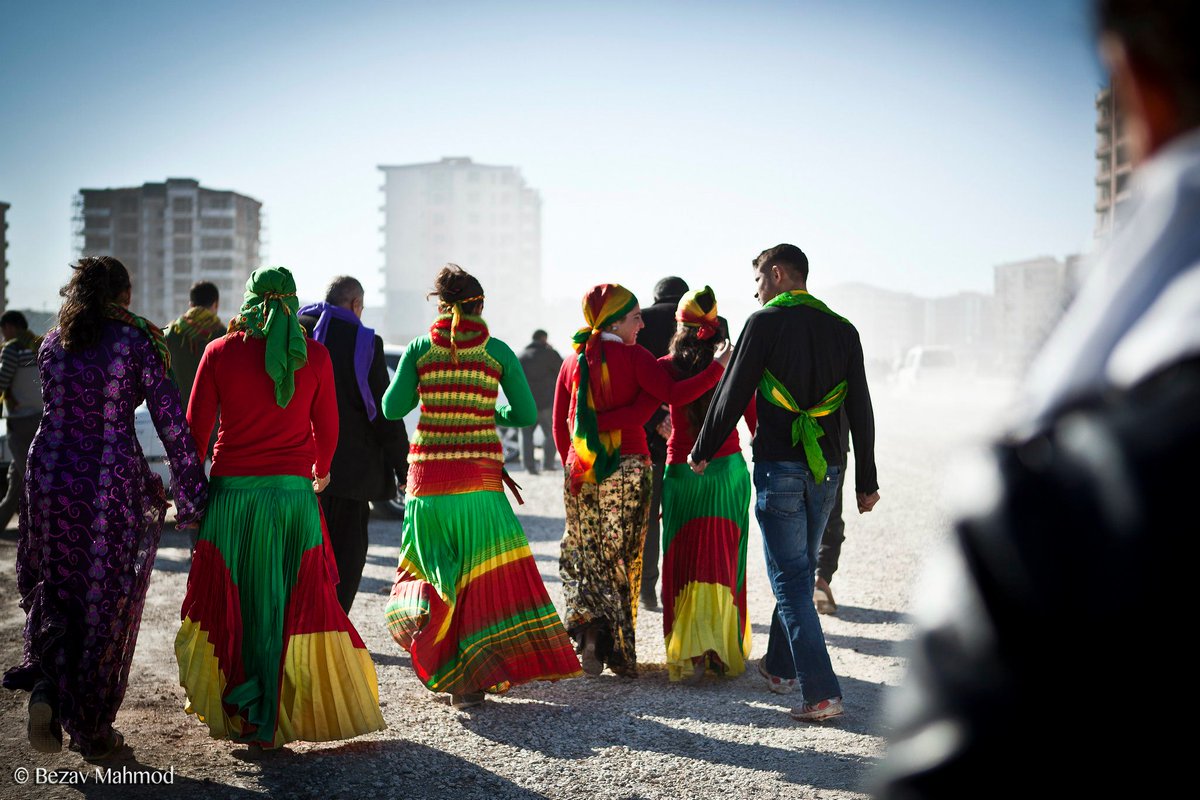

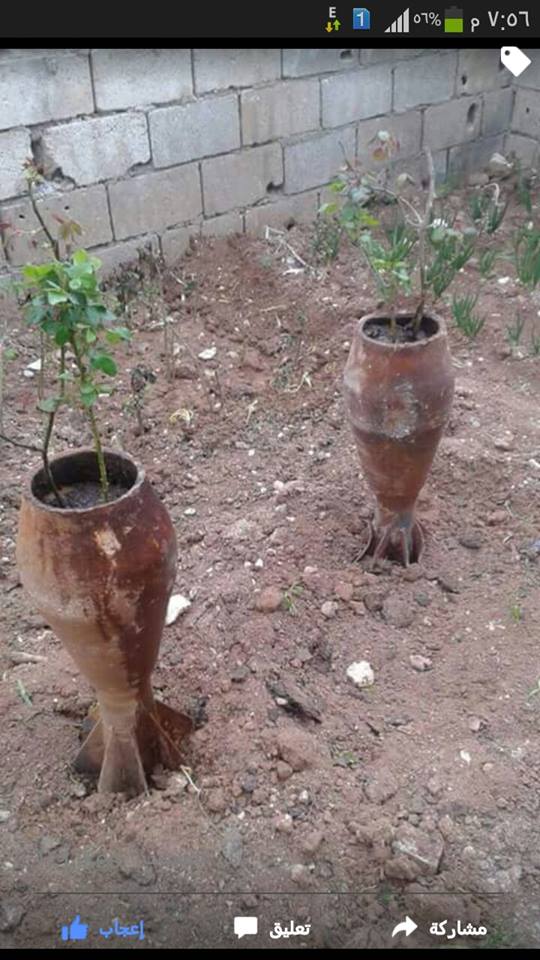
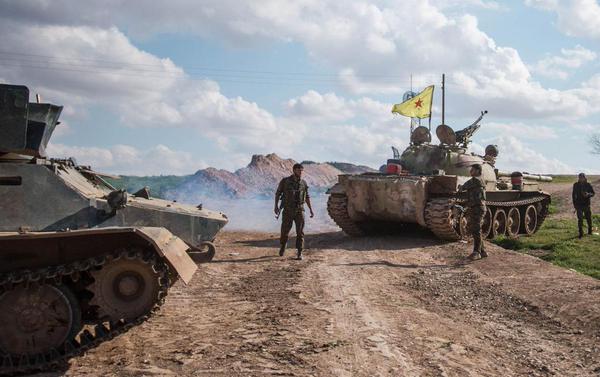

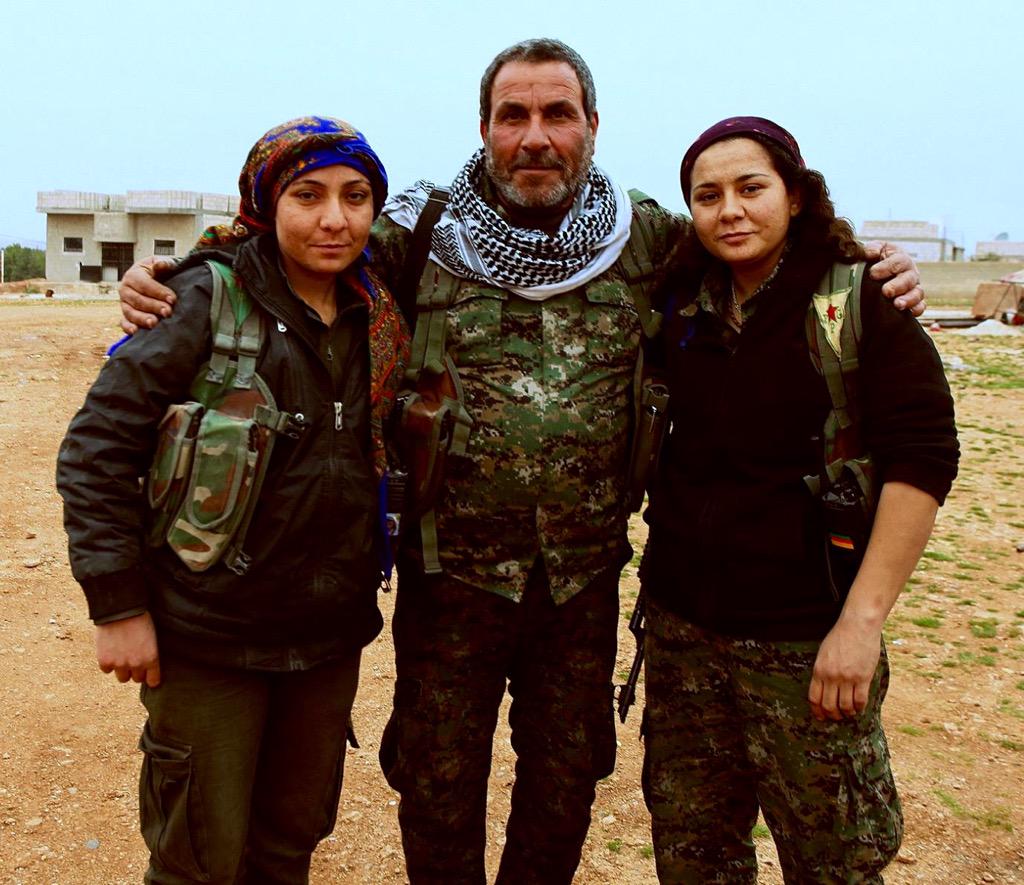


Thank you Tom, for the passage from Mehmed Uzun (who I'd never read before). As always, your combination of words and images is almost impossibly hard to look at, but of course exactly where we should be looking.
ReplyDeleteI know, huh.
ReplyDelete& don't forget RIP Hijo Del Perro Aguayo.
...un gran hombre ... una leyenda ... despedida.
Who needs Fleurs du Mal when you got Perros Del Mal?
http://thewrestlingrevolution.com/images/wrestlers/hijoDelPerroAguayo4.jpg
Thanks very much, Nora.
ReplyDeleteA partial apology first: the grim images in the third section of this otherwise celebratory post are presented not to shock but to inform; we hear so much about the bad guys who are now over-running and wantonly destroying great swaths of this part of the world; here we see what they look like, and who is actually standing up to them -- I don't mean the longrange airstrike button pushers, but the people, men and women, who are doing the real fighting, and experiencing the real suffering, and being largely ignored by the world.
Mehmed Uzun was a major contributor in the creation of a modern Kurdish literary language and the revival of ancient Kurdish traditions of narrative. Though his mother tongue was legally outlawed in Turkey from 1920 to 1990, and continued to be banned in all public, institutional and official contexts thereafter, he stubbornly insisted on writing in and promoting it. For this he was harassed, jailed, driven into exile, had his works banned, was tried and re-tried, and continued to be the object of persecution throughout his writing life -- which ended prematurely when he was stricken with cancer in 2006; the following year he returned from Stockholm to his native Dyarbakir again, this time not to be tried anew, but to die.
Uzun's life is a parable of the importance and value of the word, the historical significance of expression and meaning in language, and the progression through thoughtful and humane linguistic exploration to greater understanding, respect and equity among peoples.
In all these respects it stands in direct contradiction to the model of linguistic work proposed to us by the established institutions of the Word in this country.
Imagine trying to explain to Mehmed Uzun the phenomenon of a state-sponsored mercenary agent of the academic establishment standing before an audience in an elite university, publicly "performing", with editorial "alterations" for "poetic effect", the state-authored autopsy report on a dead victim of state terror, whose voice has yet to be heard by anyone.
This language we in our "democracy" attempt to use is in fact owned and controlled by others.
In researching this post I studied the monthly reports of the Human Rights Foundation covering the years in which Uzun was tried, sentenced, imprisoned, exiled, had his books banned, was twice retried. These records make it plain that the cause for which Mehmed Uzun gave up his life -- that of the language and culture of the Kurds, his people -- was not his alone.
In one two-day span of Turkish court records sampled (December 2001), the HRF reported such fairly routine cases as these:
(12/055) Campaign on Education in Kurdish... The students Abdurrahim Demir, Resat Bagci and Ömer Kaçmaz were detained at the entrance of Diyarbakir Dicle University on 7 December. They wanted to hand over a petition for education in Kurdish, signed by 1,500 people to the Rector of Dicle University. (8 December, Yedinci Gündem)
(12/057) Activity Prohibited... An activity of the Diyarbakir Platform of branches in the Confederation of Trade Unions in the Public Sector (KESK) on the 6th anniversary of its foundation was prohibited, because the invitations included Kurdish words. (9 December, Yedinci Gündem)
Though Uzun never overcame the personal grief his long exile imposed, while in Sweden he worked tirelessly to fulfill the mission he had set for himself, as a restorer and developer of his native Kurdish language. These are excerpts from a citation accompanying a Swedish literary award:
ReplyDeleteThe Torgny Segerstedt Award for 2001: Mehmed Uzun - An Introduction
Ulla Berglindh, November 2001
Mehmed Uzun is a Kurd, a Swede and an internationalist. He was born in 1953 in Anatolia, near the city of Diyarbakir, and by now he has lived in Sweden almost as long as in Turkey.
Mehmed Uzun set out on the road to "welate xeribiye", to his new country, to exile, in the summer of 1977. In darkness he walked out of his country, across the border, leaving the country that had refused him permission to write and speak in his own language. Eventually, by way of Syria, he arrived in Sweden, bringing with him the Kurdish oral narrative tradition, his maternal grandmother's colourful bedtime stories, the songs, legends and narratives of the Dengbejs, the Kurdish troubadours.
With untiring determination and great efforts, banished from his country to "a separation, such grief", he has created a Kurdish literary language in the barren landscape of exile; he has recorded, collected, rewritten, recreated. He has published six novels in Kurdish. Two of his books have been published in Swedish: a collection of essays, Granatäppelblomning (Pomegranate Flowers), and the novel I skuggan av en förlorad kärlek (In the Shadow of a Lost Love). In collaboration with Madeleine Grive he has also published an international anthology, Världen i Sverige (The World in Sweden), a pioneering anthology of texts by writers who were not born in Sweden, but who are living and writing in this country.
Mehmed Uzun is firmly established in the tradition and the world of exiled writers, among those well-known to us, such as Ovid, Dante Alighieri, Witold Gombrowicz, James Joyce, Joseph Brodsky, Hermann Broch, William Saroyan, Nazim Hikmet, as well as new acquaintances such as Celadet Bedirhan, Kadri Can, Memduh Selim, Mevlana Halid, Erebe Semo. With them he shares the constant longing for their own country, their own language, their own setting, and their own values. However, in Mehmed Uzun this longing and regret is also combined with a limitless curiosity and thirst for knowledge.
His writings and his profound familiarity with matters Kurdish / Turkish / Oriental, as well as with the cultural tradition of the West, and not least Sweden, also makes Mehmed Uzun a unique builder of bridges between cultures. He gives us new words and new images - he furnishes his landscapes with Anatolian villages, high mountains, rainbows and swarming alleys, he plants peach trees and lets the pomegranate trees blossom, and all the time the words are there, the narratives, the songs of the troubadours, the stories of struggle and love, of heroes and Dengbejs.
The importance of words is also realized by the Turkish authorities, which, yet again, want to put Mehmed Uzun on trial - this time for a collection of essays written in Turkish, Bir dil yaratmak (To Create a Language). Last time he faced a trial was in the spring of 2001, when, despite the threat of a prison sentence, he courageously met his prosecutors face to face. That time he was acquitted and the case was dismissed, but now a new attempt has been made, ironically on the very same day that the Parliament of Turkey passed an amendment to a section of the Turkish Constitution that prohibits publication in the Kurdish language. Last spring, a large body of internationally acclaimed writers unanimously supported Mehmed Uzun by articles, petitions and their personal presence at the court proceedings, and he will have their support again and again, since Mehmed Uzun is immensely important as a writer, as a builder of bridges between cultures, as a creator of language, and as a symbol of the power of free speech.
And finally, an excerpt from Mehmed Uzun's final statement opposing legal charges made against him and his work in the Turkish courts in 2002.
ReplyDeleteMehmed Uzun’s defense offered in the Diyarbakir State Security Court No. 4. (19.04.2002):
As a writer whose dreams come in different languages and who continually lives in different languages, cultures and atmospheres I don’t carry out separatism and even if I wanted to, I couldn’t. My duty is not to be a separatist, but a unifier. The fundamental element for me is not to divide but to unite. Separatism is not just something foolish; I also see it as a dangerous thought. As a multicultural writer I know from my own personal experiments how racism, nationalism, totalitarian ideology and prejudice against other languages, religions, identities and cultures are monsters and I definitely don’t like these kinds of things. As a writer the one thing I have tried to achieve in all my novels and essays, in my literary conversations and communications is the creation of a literary place in the service of all mankind where languages, religions, cultures and different individuals can meet without hatred and prejudice.
I was born in a small city some 70 kilometers from here, the child of a Kurdish mother and father. My mother tongue was Kurdish and the Kurdish oral literature created the first richness of my soul. For this reason and because I feel a moral responsibility, I write my novels in Kurdish. Despite all the difficulties, creating the art of a modern human novel is the central duty of my life. However I am doing this not to engage in foolish separatism, but to be able to offer a different voice, a different human fate and stories to the Kurds, the Turks, Turkey and the world. I am writing not to engage in separatism but to enrich what already exists.
Even if I hadn’t been Kurdish, I would say that the Kurds have the right to a language, identity and culture and I would defend this. Because according to me everyone in the world has these rights and nothing must ever touch these rights... according to me an individual’s right to language, religion and identity is sacred. All the words, languages, religions, cultural characteristics are born of man’s need and answers man’s needs especially where his spiritual and emotional worlds are concerned. The existence and development of these enriches us all and their prohibition or destruction impoverishes us, that is to say, humanity. Everybody can have an ideology, politics, thought but never should a person use language, religion and identity as an instrument of politics, ideology and profit; he must never forbid the language, religion and identity of others; these must not cause pain. To try to forbid or destroy an individual’s language, religion and identity is separatism. And not just separatism, it is a crime against humanity.
Despite all the wars, the political eruptions and social and economic ups and downs, mankind has infallible measures: human conscience and mercy. The measure for my view of life and human beings for me as an individual is not ideologies or politics; it is conscience and mercy. Most of the time because arguments and daily political noise are disturbances, we can’t hear what the voice of this human conscience and mercy has always said to us throughout history: don’t touch an individual’s language, religion and identity. Human conscience and mercy have always been the distinguishing mark of human development. Even if regimes, states, organizations, politics, ideologies and the legal systems created in conformity to these would want to drown out the voice of human conscience and mercy from time to time and place to place, at the end this voice reasserts itself to understand what is right and correct.
I'd want to echo Nora's gratitude.
ReplyDeleteI guess it takes a people who've had their language slapped out of their mouths to resist an army driven by scripture-fed tyranny.
They are amazing to me, the Kurds. But one should not be amazed, I suppose.
ReplyDeleteThey've been up to this a very, very long time.
A while back there was a period when we were meant to have sympathy with them, surrounded by menacing enemies as they perennially are... For that matter, several periods. When it came out how they they had suffered under Saddam Hussein, a brief show of retrospective sympathy. Since then they have continued suffering under the Turks -- and now they are taking the brunt of the evil of "the daeshbags"... and giving back as good as they get.
But of course, they remain alone. All alone.
The sight of the collective life in their equinox celebrations takes my breath away.
And as to their present tormentors... like that redheaded dead kid from... where?
Minnesota?